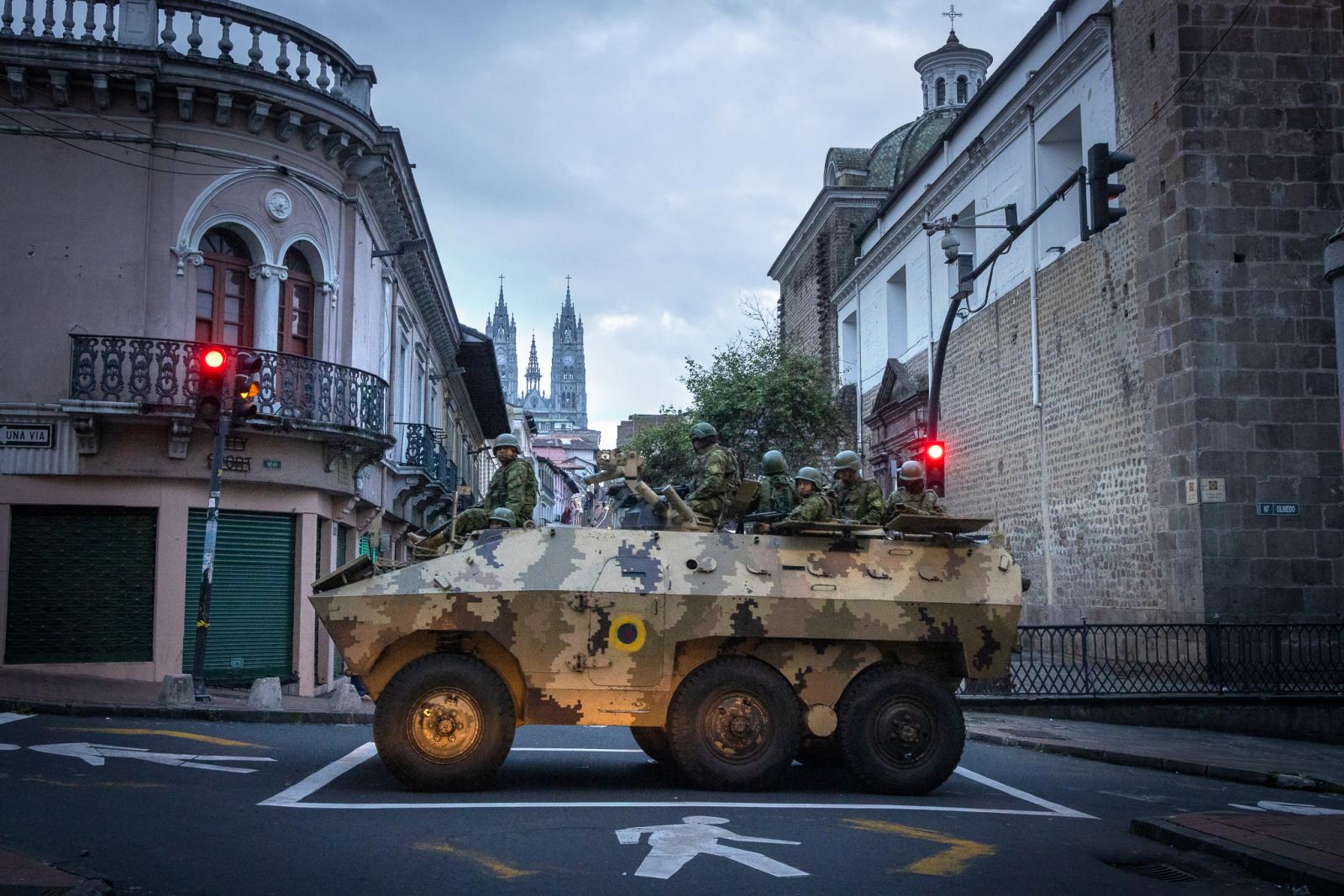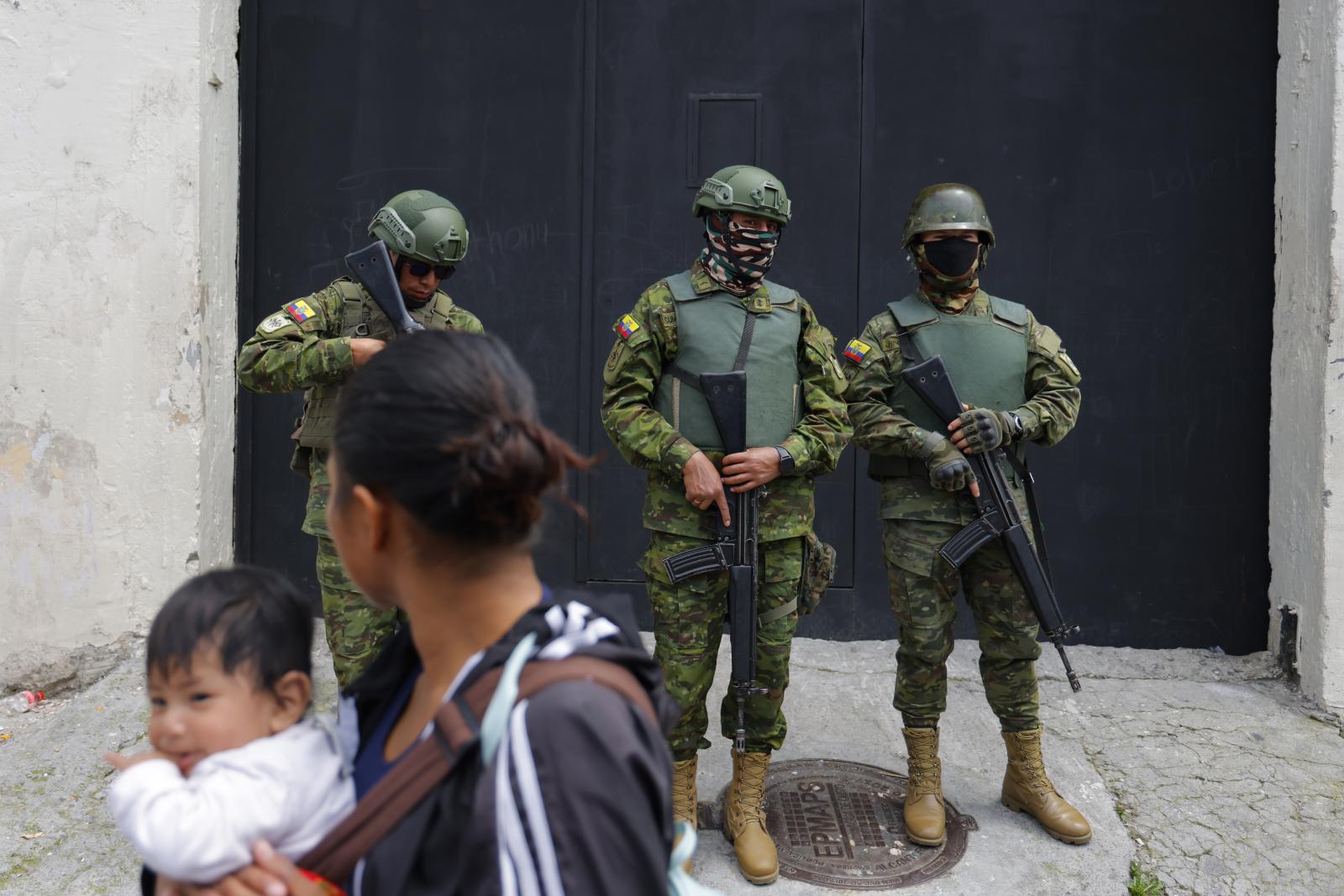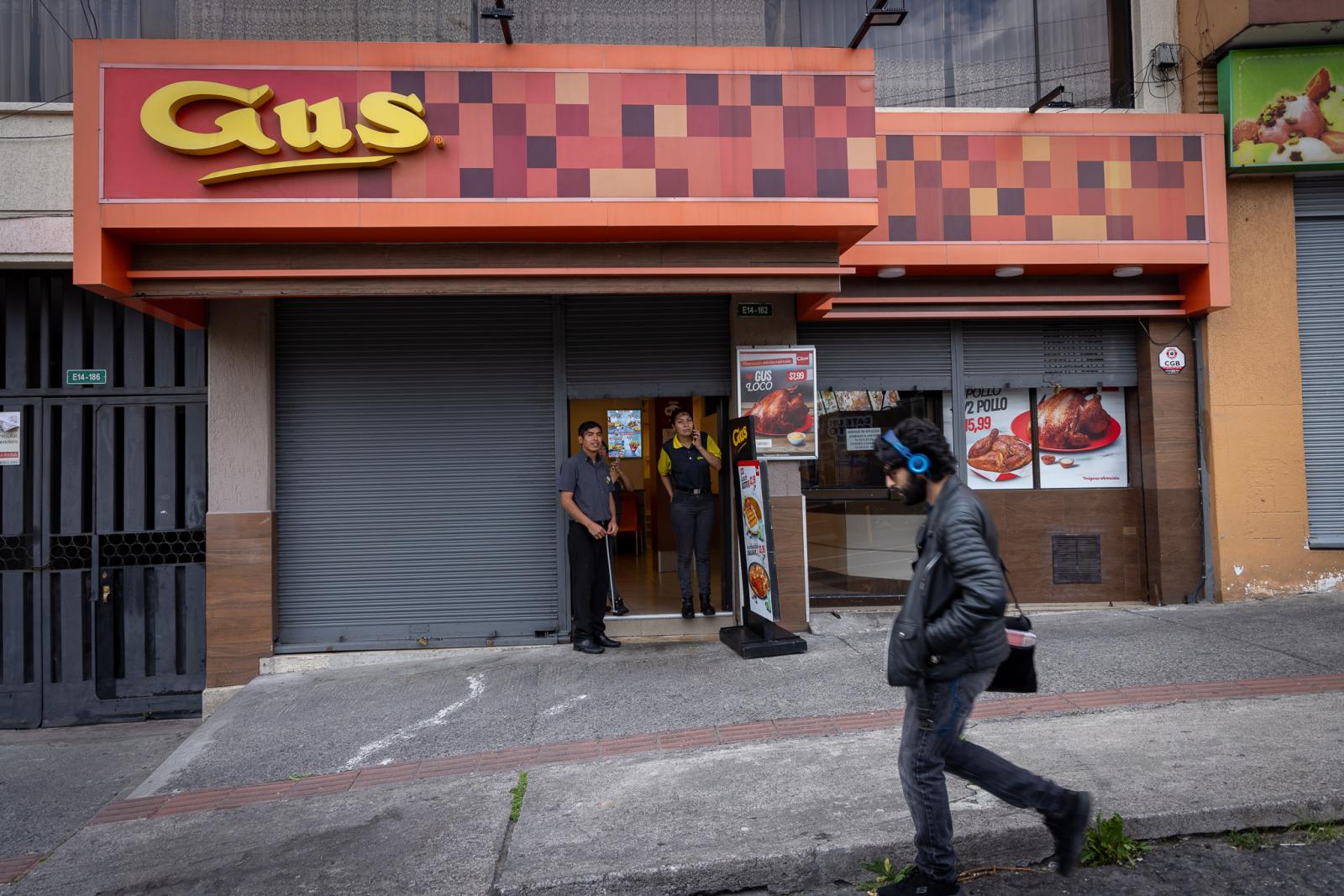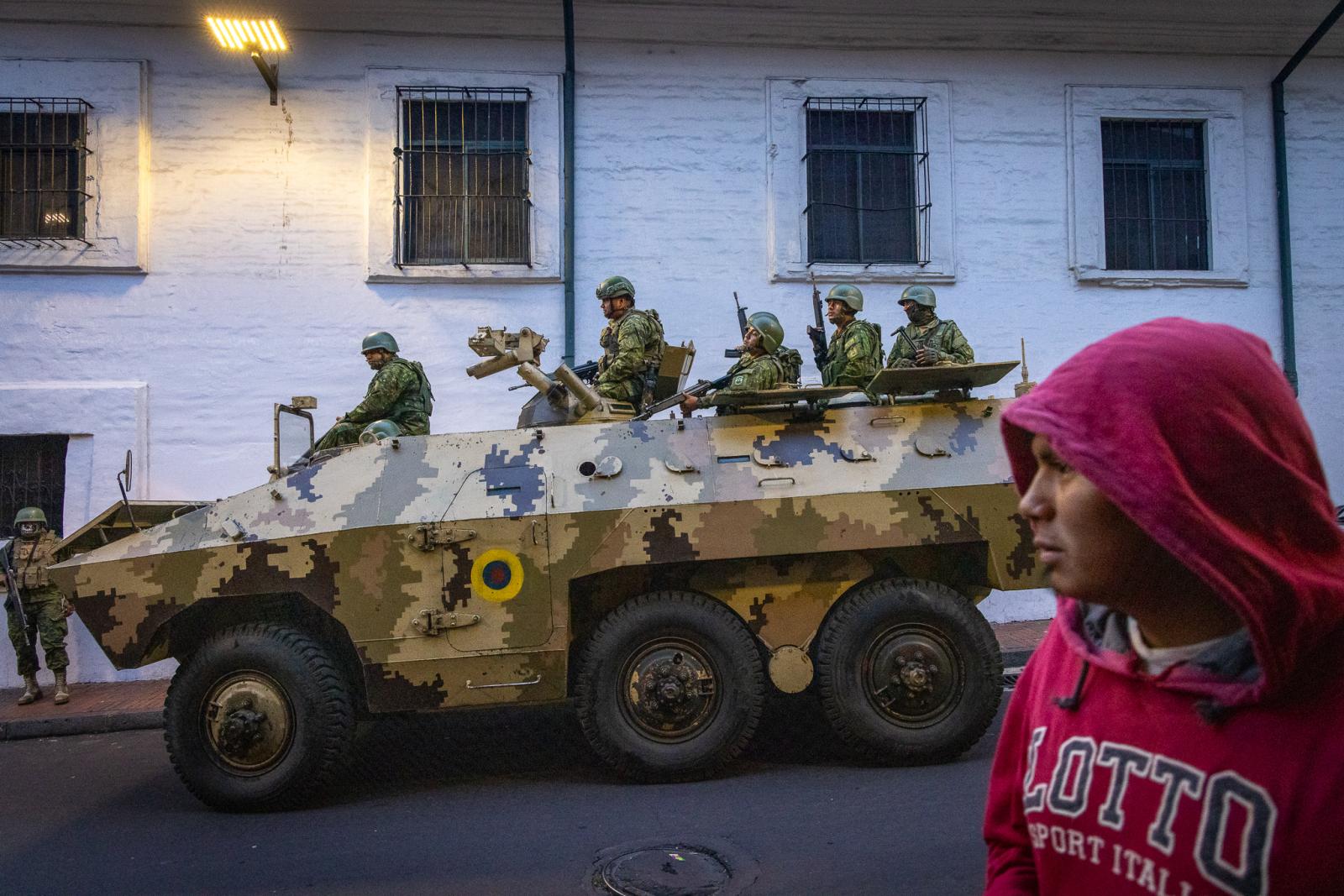Public Story
Ecuador's wave of violence and internal armed conflict
Summary
Short log of the first month since the declaration of 'internal armed conflict' by the government of Ecuadorian President Daniel Noboa, in which he has declared 'war on terrorism' against organized crime groups.
See a report of all the days in this entry: Ecuador's wave of violence and internal armed conflict
See a report of all the days in this entry: Ecuador's wave of violence and internal armed conflict
Since the night of January 8 and throughout the following early morning, we experienced a long night filled with reports of kidnappings, murders, fires, car bombs, and explosives in several cities across the national territory, just after the announcement of a new state of emergency and curfew.
The day of January 9 was also marked by violence; the TC Televisión channel was attacked and taken over by a criminal group while broadcasting their own kidnapping live.
Additionally, there were reports of shootings in downtown Quito, students fleeing in stampedes from universities in Machala and Guayaquil, and numerous incidents in other cities. We ended another day of violence with the news that the State has declared criminal gangs as a military target, thus initiating an 'internal armed conflict,' in other words: a war.
On January 10, 2024, the Historic Center of Quito, which usually sees a high circulation of people, looked desolate. After President Daniel Noboa declared an internal war on criminal groups, now labeled as terrorists, classes across the national territory are suspended, the majority of public officials are working remotely, and many merchants opted not to open their premises.
For a few hours, the capital Quito experienced chaos.
After the government of Daniel Noboa declared a state of emergency followed by a declaration of Internal Armed Conflict, children and adolescents returned to virtual classes (similar to during the pandemic) after the Ministry of Education suspended in-person classes across the national territory due to the wave of violence we have been experiencing since the night of January 8
After several days of violence in Ecuador, people continue to be frightened but also try to carry on with their activities.
At the San Francisco Market, the oldest in Quito, in the San Roque neighborhood (known for its bustling atmosphere), it now appears deserted. At this market, according to its workers, the market only received 20% of its usual clientele, and several of the merchants decided not to work. For example, out of the 12 herbalists in the market, only 4 opened. The market also decided to close at noon instead of the usual 3 p.m
On January 11, Ecuador woke up to more news of attacks in different parts of the country. In Quito, the Community Police Unit known as 'El Blanqueado,' located in the El Conde neighborhood in the south of the city, was partially destroyed after an explosive device was placed at the entrance the previous night.
On January 12, since Ecuadorian President Daniel Noboa declared the 'internal armed conflict,' the armed forces have been conducting military operations in sectors of the city they consider to be contentious. The neighborhood 'La Lucha de los Pobres' is an organized area that began with invasions over 40 years ago and now has more than 30,000 inhabitants. Located in the southern hills of Quito, almost any point in the neighborhood offers a viewpoint.
During their operations, the military are conducting searches on individuals they consider 'suspicious' for any reason, and during this time, they are documenting the tattoos that these individuals have with photographs.
On January 13, following Presidential Decree 111 regarding the 'internal armed conflict,' the Ecuadorian state began on January 12 to require individuals entering through the borders of Peru and Colombia to present a criminal record certificate. Additionally, border security has been reinforced with increased military presence. I was able to accompany a group from the 31 Andes Infantry Brigade of Tulcán (northern border) to the border crossings of Rumichaca and other irregular crossing points.
On the night of January 13, 201 prison guards and officials who were being held hostage in various prisons across the country were released. Following their release, military and police operations were conducted to regain control of the prisons.
Meanwhile, on January 14, a contingent of approximately 1,500 soldiers and 700 police officers entered the Cotopaxi Prison. This is one of Ecuador's mega-prisons where there are more than 4,300 incarcerated individuals.
On February 11th, one month after the declaration of internal armed conflict, the government of Daniel Noboa has sent bills to the National Assembly to secure resources to financially support what he calls: the war against terrorism. Several governments have expressed their intention to support Ecuador in this 'fight,' with the United States government being the one that, up to now, has sent the most resources to the National Police.





























